* Texts from Steve Zeltzer on Jan. 20, 2011
TALKING POINTS ABOUT KORUS FREE TRADE AGREEMENT
James Jordan,
National Co-Coordinator,
Alliance for Global Justice
Thank you so much for agreeing to take a delegation to your Representative's office to express your opposition to the South Korea-US Free Trade Agreement, or, KORUS. This would be the biggest FTA passed since NAFTA and would be just as bad--and it would open the door for pending FTAs with Panama and Colombia. The only way we can defeat this bad agreement is by diligent, in-the-trenches struggle: the way we've beaten these agreements in the past, the way we beat bad trade accords like the Free Trade of the Americas Agreement. What you are doing in your community is, indeed, just what is needed!
Right now the momentum is toward passage of KORUS. The White House has finished talks with South Korea and has said it would push for passage in the new Congress. And we believe that the votes to pass KORUS are there, at least at this point. Fair trade activists agree that KORUS proponents will try to bring it to a vote in Congress before the Spring, when it becomes politically risky because of the beginning of the presidential campaign season. Our best way to defeat KORUS is to make it politically unfeasible to even bring it to a vote. That's why we have to target Congress now and demand that our Representatives contact the White House and let Pres. Obama know that passing KORUS has already become too potentially damaging.
We've put together a short list of talking points for you. However, there is one point that should be emphasized above all others, and that is the unpopularity of KORUS and FTAs on all sides of the political spectrum, especially among grassroots activists on both the Left and the Right. Those who support FTAs are doing so at the risk of alienating the very voters who put them in office!
So--this is the main point to drive home to your Representative:
Tell Pres. Obama that the KORUS Free Trade Agreement is D.O.A.--Dead on Arrival, and not to even bother bringing it to Congress. And if KORUS does come to a vote, a vote for the FTA means a loss of votes come the next election!
Again--thanks so much for doing this. Following is a short list of talking points. Please contact us if you have any questions, comments or feedback. And please be sure and let us know how your visit went with you Congressperson. We want to hear!
Together, we can beat KORUS and together, we can build a beautiful, more just and peaceful world!
TALKING POINTS:
Free Trade is unpopular on the Left and on the Right. According to polls released in October, 2010, by the Pew Research Center, support for Free Trade is at an all time low, with 44% of respondents saying that FTAs are bad for the U.S. and only 35% saying they were good. When asked how FTAs had affected their personal finances, 46% said they had been hurt, and only 26% said they had been helped. Only 28% of Republicans said that FTAs were good for the US, and among Republicans and Independents who were in agreement with the Tea Party, 63% said FTAs had been bad. A September 2010 poll by NBC News/Wall Street Journal showed 69% of US-ers believe FTAs have resulted in job loss in the US and 53% (up from 46% in 2007) believe FTAs have had a bad effect on the nation overall. The polls showed that 65% of union members, as well as 61% of Tea Party members think FTAs have harmed the nation.
KORUS includes investor state dispute settlement provisions that allow transnational corporations to sue governments that adopt policies and laws that they believe to harm their access to profits, including laws protecting the environment or that adopt high food quality standards. On the other hand, KORUS includes no effective international guarantees for labor rights.
KORUS severely limits the ability of both South Korea and the US to establish control over their own agricultural domestic policies. It interferes national sovereignty to adopt anti-dumping provisions which are so devastating to family farmers, or price floors that protect crop prices from falling too low. The agreement prohibits both the US and South Korea from adopting protective measures for family farms, while favoring provisions that only benefit big agribusinesses. KORUS includes provisions that limit the ability to adopt national prohibitions against patents on plant resources for food and agriculture.
KORUS prevents governments from using tax dollars to support responsible purchasing and contracting practices that favor local suppliers or contain other non-commercial criteria.
The U. S. International Trade Commission has predicted that KORUS will actually increase the US trade deficit. The Economic Policy Institute maintains that KORUS will make the US trade deficit with Korea twice as bad, up to $26.9 billion annually within seven years. This will result in 888,000 jobs lost as a result of Korean imports. If one figures in employment created by increased US exports and jobs lost because of the already existing deficit with South Korea, there are some 200,000 jobs that will be lost.
___________________________________
See also
Rogue Valley IMC
Wyden finds more KORUS FTA resistance in Southern Oregon
The Detroit News
Corporate Unionist UAW's King makes union case to Chinese at state dinner-Dinner Invite After Supporting Obama's Anti-Labor KORUS KOREA US Free Trade Agreement
Subscribe to:
Post Comments (Atom)

![[URGENT PLEA: In Update] EMERGENCY in GANGJEONG Since AUG. 24, 2011](http://2.bp.blogspot.com/-3iz8k-USXVY/TlmRYhhIYtI/AAAAAAAAL2c/9dbF85ZIkIs/s227/jejusit.jpg)

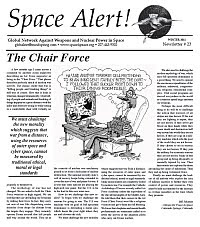

![[Solidarity from Japan for the Jeju] 253 individuals and 16 groups/organizations](http://2.bp.blogspot.com/_gnM5QlRx-4c/TR_YeNVE1yI/AAAAAAAAHWQ/ARyf6oQN0S0/S227/jeju_12_10j.jpg)
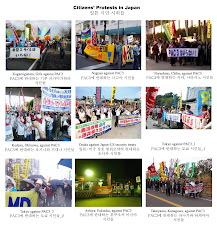
![[Translation] Korean organizations' statement: Immediately cancel the joint ROK-US drill Nov 26](http://2.bp.blogspot.com/_gnM5QlRx-4c/TPOE8VKXHFI/AAAAAAAAGlM/8lryt-8sFjc/S227/1.jpg)
![HOT! [Hankyoreh Hani TV] Beneath the Surface: the investigation into the sinking of the Cheonan](http://4.bp.blogspot.com/_gnM5QlRx-4c/TOI83qht8aI/AAAAAAAAGXU/22SW6Q5ntV8/S227/HaniTV%2BCheonan.gif)
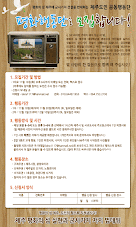
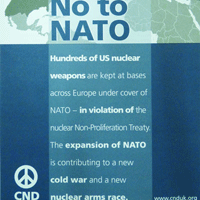

![[Translation]Statement against illegal inspection and unjust lay-off by the Kunsan USAFK!(Nov_2010)](http://4.bp.blogspot.com/_gnM5QlRx-4c/TOPLsVkZMqI/AAAAAAAAGZs/3YnnckIyAaY/S227/gunsan%2Bprotest.gif)
![[Translation] Korean organizations' statement against dispatching special force to the UAE on Nov.](http://4.bp.blogspot.com/_gnM5QlRx-4c/TOP95zHXlCI/AAAAAAAAGak/E0Ug1XtUFfM/S227/antiwarpeace.jpg)
![[Translation] Stop, Joining MD!: South Korean activists' statement and writing on Oct. 25, 2010](http://3.bp.blogspot.com/_gnM5QlRx-4c/TOP7Es4_2sI/AAAAAAAAGac/eWVMPD-U4p0/S227/StopMD.jpg)
![[In Update] People First, NO G-20 (Nov. 6 to 12, Korea)](http://2.bp.blogspot.com/_gnM5QlRx-4c/TJd53XBzHlI/AAAAAAAAFQo/ldO9JPE3eqo/S227/left21_G20.jpg)
![[International Petition] Stop US helipad plan in Okinawa to save great nature](http://4.bp.blogspot.com/_gnM5QlRx-4c/TKC2AHRNzBI/AAAAAAAAFUo/yGWXODTw_uM/S227/yanbaru_w.jpg)

![[Global Network] against the first launch of Quasi-Zenith Satellite, Japan, on Sept. 11, 2010](http://4.bp.blogspot.com/_gnM5QlRx-4c/TIowa1boy4I/AAAAAAAAFDI/82rAi98uq-c/S227/Qzss-45-0_09.jpg)

![[In update] Some collections on the Koreans’ protests against the sanction & war on Iran](http://4.bp.blogspot.com/_gnM5QlRx-4c/TJMvke6t8zI/AAAAAAAAFO4/tamQ8LUnOOA/S227/No+Sanction+on+Iran.jpg)
![[Three International Petitions] to End the Korean war and peace treaty(or peace resolution)](http://1.bp.blogspot.com/_gnM5QlRx-4c/THef7bzWxYI/AAAAAAAAE44/wwdzSDfYhdw/S227/border.jpg)



![[Collection of Documents] No Base Learning and Solidarity Program_Korea(June 14 to 20, 2010)](http://1.bp.blogspot.com/_gnM5QlRx-4c/TCTvVuN8NeI/AAAAAAAAEek/8vBJVaHdk10/S227/No-Base-banner.jpg)
![Site Fwd:[John Hines] A U.S. Debate coach’s research trip on the Issues of Korea](http://3.bp.blogspot.com/_gnM5QlRx-4c/TINCO36mzzI/AAAAAAAAE_w/Rds12NcBOXM/S227/Jeju-Peace-Tour.jpg)


![[News Update] Struggle Against the Jeju Naval Base since Jan. 18, 2010](http://1.bp.blogspot.com/_gnM5QlRx-4c/S1vvWaP25uI/AAAAAAAACkg/QvpW1tgOlKM/S226/scrum1.jpg)


![[Urgent] Please spread the Letter!: There was no Explosion! There was no Torpedo! (May 26, 2010)](http://4.bp.blogspot.com/_gnM5QlRx-4c/S_9JmsKEU7I/AAAAAAAAEP8/sAWjSPqxzUI/S227/grounded.jpg)
![Text Fwd: [Stephen Gowans]The sinking of the Cheonan: Another Gulf of Tonkin incident](http://1.bp.blogspot.com/_gnM5QlRx-4c/TAL_FtYKQ-I/AAAAAAAAERE/NEEMijiEcRM/S227/lee-myung-bak.jpg)
![[Japan Focus]Politics in Command: The "International" Investigation into the Sinking of the Cheonan](http://1.bp.blogspot.com/_gnM5QlRx-4c/TBMJ2syJzyI/AAAAAAAAEZU/uTYZccU5vyk/S227/wen_jiabao_and_lee_myungbak.png)
![[Japan Focus] Who Sank the SK Warship Cheonan? A New Stage in the US-Korean War and US-China](http://2.bp.blogspot.com/_gnM5QlRx-4c/S_iQ2vE5ZpI/AAAAAAAAEOU/Oo1SPcAe8FE/S227/buoy_map.gif)
![[Updated on 12/13/10] [Translation Project] Overseas Proofs on the Damages by the Military Bases](http://4.bp.blogspot.com/_gnM5QlRx-4c/S-qSj59gPLI/AAAAAAAAEGM/mwjlFtPE-jo/S227/missile.jpg)
![[International Petition] Close the Bases in Okinawa](http://3.bp.blogspot.com/_gnM5QlRx-4c/S8-z3DYNwNI/AAAAAAAADo4/OswTSchK09M/S227/2.jpg)

![[In Update]Blog Collection: No Korean Troops in Afghanistan](http://4.bp.blogspot.com/_gnM5QlRx-4c/SwnlLD9IewI/AAAAAAAAB9E/oUPssnpNidA/S226/No-Troops-to--Afghanistan.jpg)
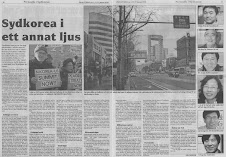

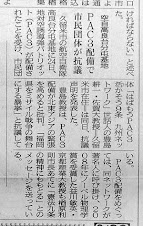





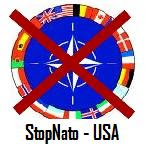


No comments:
Post a Comment